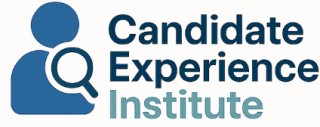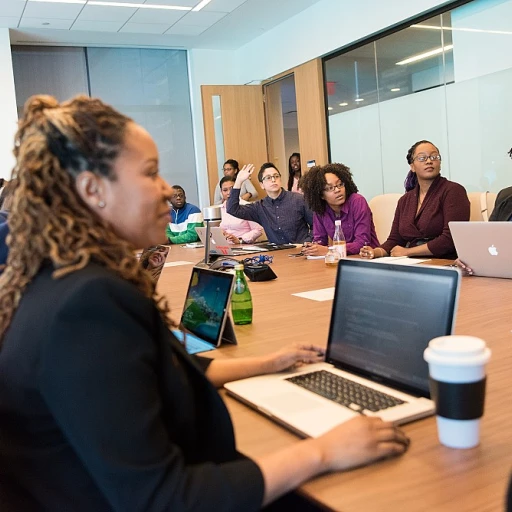Why Candidate Experience Matters
The Importance of Prioritizing Your Candidate's Experience
In today's competitive job market, securing top talent is no small feat. Companies are not just vying for customers but are also in a race to attract the best candidates to join their workforce. This is where the candidate's experience during the recruitment process comes into play. A positive candidate experience can be the distinguishing factor that sets a company apart and makes it more attractive to potential hires.
Candidates who have positive experiences are more likely to accept job offers, recommend the company to others, and even apply for future positions. On the contrary, a negative experience can tarnish your employer brand and hinder your ability to recruit talent. Think about it: if a candidate feels respected, valued, and well-informed throughout the application process, they're more likely to view your company favorably, regardless of the outcome.
A smooth and thoughtful candidate experience shows that a company values its potential employees as much as its current ones. In this sense, candidate experience is not just an HR concern but a holistic view of how prospective employees interact with a brand. Companies must invest in creating a seamless and efficient application process, conduct meaningful interviews, and cultivate a strong employer brand, fostering positive interactions at every stage.
In order to perfect this experience, it's crucial to measure and improve your approach systematically. Learning from any negative experiences and continually refining your recruitment strategy ensures your company remains at the top of its game when it comes to attracting incredible talent. For more insights on mastering these aspects, visit our in-depth analysis on "
mastering the art of a great candidate experience" blog post to discover effective strategies and benefits. This way, you can ensure your candidates feel valued from click to close, making your company a desirable choice in the market.
Streamlining the Application Process
Simplifying the Journey for Candidates
In today's competitive job market, streamlining the application process is essential for attracting and retaining top talent. Candidates expect a smooth and efficient journey, from the moment they encounter your job posting to the final stages of the hiring process. By focusing on this aspect, employers can significantly enhance the candidate experience, ultimately boosting the likelihood of securing the best candidates.
A crucial step in improving the application process is to eliminate unnecessary hurdles. Consider evaluating your current system: How many steps are there? Are candidates required to fill out lengthy forms or upload multiple documents? While detailed information is important, excessively cumbersome procedures can deter even the most interested candidates. Aim to create a streamlined process by minimizing redundant steps and providing clear instructions.
Moreover, technology can be a great ally in revamping the application experience. Implementing user-friendly platforms that allow candidates to apply with ease—possibly even on mobile devices—can dramatically improve their perception of your organization. Automated confirmations and timely updates regarding application status help maintain transparency and keep candidates engaged, reducing anxiety and making them feel valued.
Remember that communication is key. Clear communication throughout the process ensures that candidates remain informed about expectations and timelines. For further insights on how refining the application stage influences the overall hiring success, check out this comprehensive article on
understanding the candidate experience.
Incorporating these strategies will not only enhance the candidate experience but also reflect positively on your company's recruitment capabilities, setting the foundation for effective interviews and a robust employer brand as discussed in subsequent sections.
Conducting Effective Interviews
The Art of Asking the Right Questions
Conducting effective interviews is an intricate dance where both the employer and the candidate seek to understand if a true partnership can be forged. To master this part of the recruitment process, begin with thoughtful preparation. Clear communication is paramount; candidates should be well-informed about what to expect and whom they will meet. This transparency sets the stage for open dialogue, reducing anxiety and encouraging genuine interaction.
An interview at its best is more than a rigid Q&A session. Instead, it should be tailored to resemble a meaningful conversation that not only evaluates the candidate’s qualifications but also delves into their potential fit with the team and company culture. Crafting the perfect questions is crucial. They should be designed to uncover a candidate's problem-solving abilities, creativity, and adaptability, particularly aligned with the roles' requirements.
In addition, interviewers should be trained not only in the fine art of questioning but also in active listening. This ensures candidates feel heard and respected, resulting in more honest and candid exchanges. It’s a subtle yet powerful signal that conveys the company’s respect for their interviewees, enhancing their overall experience.
And don’t forget the feedback – a vital element often overlooked. Providing timely, constructive responses is crucial, whether the candidate moves forward or not. To enhance this process further, consider incorporating
candidate experience survey questions to gather insights and continuously refine your approach.
In crafting an outstanding candidate experience, it's essential to recall insights from earlier discussions on streamlining application processes and fostering a strong employer brand. Together, they weave a robust strategy that solidifies trust and builds lasting impressions for those who engage with your recruitment process.
Building a Strong Employer Brand
Creating an Attractive Employer Identity
In today's competitive job market, building a robust employer brand is a crucial element of enhancing the candidate experience. A strong employer brand not only attracts top talent but also sets the tone for the entire recruitment process. When candidates perceive your organization as a desirable place to work, they are more likely to engage positively throughout their journey.
An effective employer brand communicates your company's culture, values, and mission. It's about painting a picture of what it means to be part of your organization. This can be achieved through consistent messaging across various channels, including your careers page, social media, and job advertisements. Consider showcasing employee testimonials, behind-the-scenes content, and real-life examples of how your company supports its employees.
A well-defined employer brand also involves clear and honest communication with candidates. This includes outlining what they can expect during the recruitment process, providing insights into your company culture, and offering a glimpse of potential career paths within the organization. Transparency not only builds trust but also helps candidates self-select, ensuring a better fit between the candidate and the company.
Moreover, aligning your employer brand with the values and expectations of your target candidates is essential. Understand the motivators and aspirations of the talent you wish to attract and tailor your branding efforts accordingly. This can mean emphasizing innovation to attract tech-savvy individuals or highlighting work-life balance for those seeking flexibility.
To effectively build and maintain a strong employer brand, gather feedback from candidates and employees regularly. This can be done through surveys and interviews to gain insights into their experiences and perceptions. Continuous feedback allows you to refine your brand and adapt to evolving expectations within the job market.
Ultimately, a strong employer brand not only enhances the candidate experience but also contributes to higher retention rates, increased employee engagement, and a positive reputation in the industry. By investing in your brand, you set the stage for a more seamless and rewarding recruitment journey for both candidates and your organization.
Measuring and Improving Candidate Experience
Evaluating and Refining the Candidate Journey
To truly master the art of recruitment, it's vital to not just focus on attracting candidates but also on continuously improving their journey throughout the hiring process. Measuring and improving candidate experience is a crucial aspect that often gets overlooked but can make all the difference between securing a top talent and losing them to competitors.
One could say the first step is understanding what your candidates go through when they interact with your recruitment process. Gathering feedback from candidates post-interview can provide valuable insights into their experience. Tools such as surveys or follow-up emails can be incredibly effective, prompting candidates to share their thoughts on the overall process, communication, and timeliness during each stage.
However, collecting feedback is only part of the equation. Analyzing this data is equally important to identify patterns or recurring issues. Are candidates consistently mentioning long wait times between stages, or perhaps a lack of transparent communication? Addressing these pain points will significantly enhance the candidate experience.
It's important to remember that metrics don't lie. Keep track of your recruitment KPIs, such as the candidate's Net Promoter Score (NPS), dropout rates, and time-to-hire. They can reveal trends in candidate satisfaction and highlight areas needing immediate attention.
Once you've gathered insights and analyzed them, the key is to act. Implement changes based on the feedback received, whether it's automating parts of your application process, offering quicker turnaround times, or providing clearer communication. It's about creating a continuous improvement loop to elevate your hiring brand.
To learn how to refine and enrich your approach to candidate experience during the hiring process, consider exploring more strategies on
how to improve candidate experience. The possibilities for advancement are vast, and every improvement you make can dramatically boost your talent acquisition endeavours.
Learning from Negative Experiences
Learning from Missteps
While creating a positive candidate experience is the ultimate goal in recruitment, it's essential to acknowledge that negative experiences can sometimes occur. Instead of viewing these as setbacks, they should be seen as valuable opportunities for growth and improvement.
Every candidate journey offers unique insights, but the ones that didn't go as planned can be particularly enlightening. By reflecting on these experiences, recruiters can identify patterns and potential pitfalls in their processes. Whether it's an overly complex application process or a disconnect during interviews, understanding these pain points can lead to more thoughtful solutions.
To effectively learn from these less-than-perfect scenarios, consider the following strategies:
- Collect Honest Feedback: Encourage candidates to share their experiences, especially when they haven't advanced in the selection process. Anonymous surveys or follow-up emails can be useful tools in gathering candid opinions.
- Conduct Internal Reviews: After completing recruitment cycles, hold debrief sessions with your team. Discuss both the successes and the areas that need improvement. This collaborative approach often reveals insights that aren't immediately apparent.
- Embrace Constructive Criticism: Negative feedback, albeit hard to hear, is crucial for growth. Approach it with an open mind and a genuine desire to improve the recruitment process.
By taking these steps, recruiters can transform negative candidate experiences into a pathway for refinement and success. Embracing these challenges not only enhances the recruitment process but also strengthens the overall employer brand, creating a cycle of continuous improvement.














